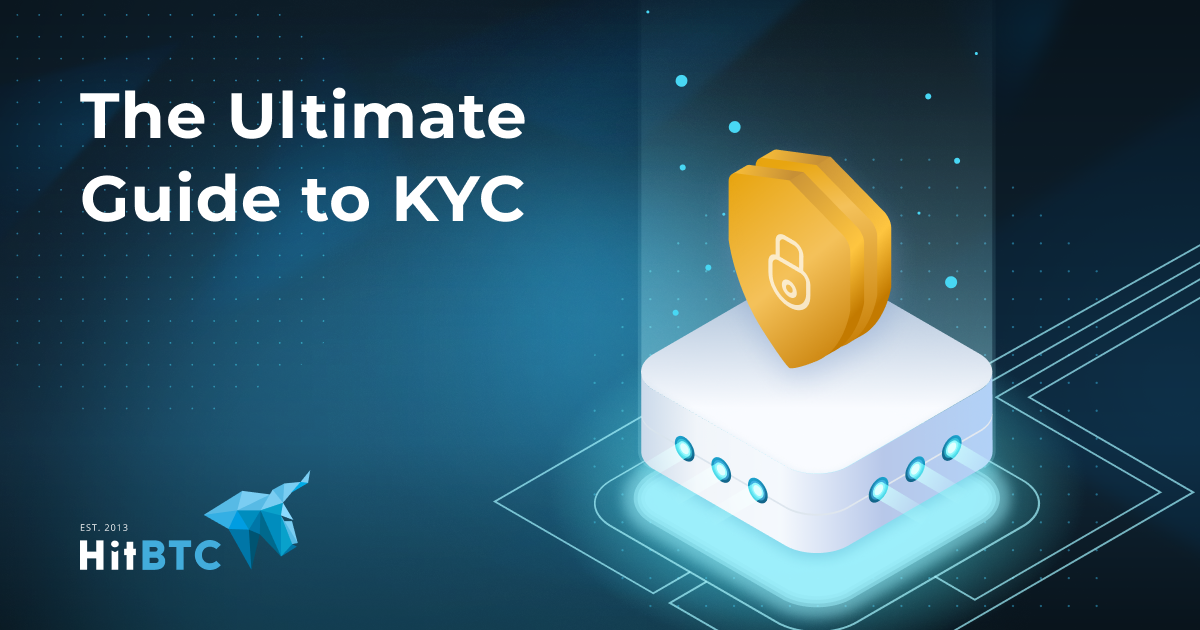The Ultimate Guide to KYC

It is hard to imagine that only a few years ago, crypto exchanges did not have mandatory KYC procedures or limits that come with it. There was no need to provide your documents and undergo verification when buying bitcoin. Today, only decentralized exchanges are not subject to KYC and AML regulations, but even this ‘loophole’ might soon disappear.
A short while ago, government authorities around the world have started developing regulatory frameworks to control the digital asset industry. And while some believe that KYC violates basic privacy, in practice, KYC measures protect users and platforms from fraudulent and illegal activities.
No-KYC centralized crypto exchanges do exist, but choosing to confirm your identity will usually give you a few significant advantages.
KYC in Crypto
Short for Know Your Customer, KYC refers to a process of verifying clients on the platforms offering financial services. Many companies in financial services industry are obliged to perform identity and other background checks to prevent all kinds of foul play, including money laundering, terrorist financing, credit card theft, and other types of fraud.
Authorities are keeping a close eye on crypto trading platforms as the BTC popularity along with the coin’s relative anonymity seems to attract more attention from criminals. In reality, that is not always the case since a tiny percentage of crypto transactions are related to illegal activities.
At the same time, some argue that the need for mandatory identity verification goes against the principles of digital currencies, such as decentralization and staying in control of your information. Practically, verification procedures can help build a positive image of digital assets and, consequently, increase the adoption level.
KYC Nuances
KYC techniques may vary depending on the registration location and operation area of the business. Even in the EU countries, the basic verification procedures are different, although they are working towards a common policy.
For example, Estonia used to be among the tech-friendliest jurisdictions that required fintech companies to carry out a standard KYC process, attracting numerous crypto projects. Recently, the authorities have tightened the regulations and demanded mandatory face-to-face video interviews, forcing crypto-related projects to look for other ‘easier’ jurisdictions.
So what to expect from a typical KYC process? Some platforms require only a copy of your ID and a liveness check, while others would ask you to take a selfie holding a piece of paper stating your name, date, and other additional info. Address verification is not always mandatory but can be a part of a more thorough KYC procedure.
Many platforms outsource their compliance and use the help of automated identity verification services, making the whole process smooth and fast. On top of that, the reusable KYC feature allows users to skip lengthy KYC procedures by requesting their data from other platforms.
The bottom line is that modern technologies simplify the verification process and let companies onboard new clients easily, allowing them to start buying coins and tokens a few minutes after signing up.
And then there are platforms that offer no-KYC crypto purchases. Such platforms allow users to buy bitcoin or any other digital currency without revealing their identity as long as the total purchase value does not exceed a certain amount (usually, up to $1,500). There are still many countries, where authorities turn a blind eye to smaller purchases and allow buying some crypto without KYC.
HitBTC KYC: Why Bother
HitBTC app boasts a very quick and straightforward KYC procedure that can be finalized in just a few minutes. While protecting you from fraud and theft, it gives access to streamlined services, higher limits, and lower fees.
For instance, if you ever lose access to your device containing the HitBTC account’s 2FA codes, or we detect any suspicious activity, you, as a verified user, can easily regain access to the exchange. As for the fees, verified customers join the Fee Tier program. The highest tier is 0.09% for both maker and taker trades, compared to 0.1% and 0.25% for unverified users. Moreover, users that passed the KYC procedure can withdraw up to 100 BTC per day and an unlimited amount of BTC per month.
Final Thoughts
Is crypto KYC safe? Very much so, as long as you are using a legitimate crypto trading platform, like HitBTC. As a part of compliance strategy, KYC protects the participants of the money transferring process and unlocks additional benefits for those willing to fall in line.
In general, you do not need to pass a verification procedure to start trading via the HitBTC app – your deposits will not be limited in any way. However, if you want to benefit from all the features available on the crypto exchange and enjoy lower trading fees, it is in your best interest to complete the KYC process.
Сrypto wallet App
The HitBTC crypto wallet is a free and simple solution for beginners.
Fees and Limits update
We have recently updated our Fees and Limits. For the latest updates, please visit the Fees and Limits section on our website here.
HitBTC Mobile App
Don’t forget that you can trade on our platform from your mobile device. Start today by downloading the HitBTC App on Android and iOS.
